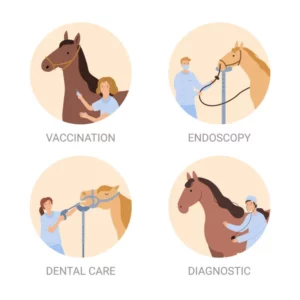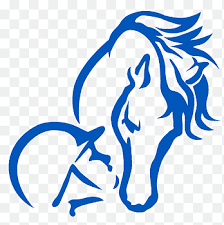If you have been considering equine therapy as a treatment option for you or someone you know, this article is for you. In this post, we will explore what equine therapy is, who can benefit from it, how it works, and why it might be a good option for you. We will also look at some of the potential drawbacks of using equine therapy and provide some resources to help you find a qualified therapist if you decide this approach is right for you.
Contents
Understanding Equine Therapy

Equine therapy is a type of treatment that uses horses as part of the healing process. It can be used with people of all ages and helps address a variety of issues, including emotional, behavioral, and physical problems.
Types of Equine Therapy
There are many different types of equine therapy, but they all share some common goals. These goals include:
- helping people to develop trust, confidence, and responsibility;
- improving communication and social skills, and
- providing a sense of accomplishment.
Theory Behind Equine Therapy
The theory behind equine therapy is that the horse-human relationship can provide a unique opportunity for healing. The horse provides an unbiased, non-judgmental mirror for the person in treatment. It can allow them to see themselves in a new way. In addition, horses are prey animals and as such, they are very sensitive to the emotions of those around them. This makes them ideal for working with people who have emotional or behavioral problems.
History and Development of Equine Therapy
Equine therapy has been used for centuries, with the first documented use being in Ancient Greece. In more recent years, it has been used as part of the treatment for a variety of issues, including:
Unfolding Equine Therapy
One of the unique things about equine therapy is that it is always unfolding. This means that the therapist and client are always working together to create a new experience for each session. The therapist will often use different horses, depending on the needs of the person in treatment.
Who Can it Help
Equine therapy can be helpful for people of all ages. It is especially beneficial for those who have/:
- difficulty trusting others,
- difficulty with communication or social skills, or
- who need to feel a sense of accomplishment.
Who May Not Respond Well
Some people may not respond well to equine therapy. This includes those who:
- are aggressive or violent,
- have a history of abusing animals, or
- cannot follow directions.
How Does it Work
Equine therapy works by establishing a relationship between the person in treatment and the horse. This relationship is based on trust, respect, and mutual understanding. The therapist will use different techniques to help the person in treatment to achieve their goals.
Techniques Used In Equine Therapy

Many different techniques can be used in this therapy. These techniques will vary depending on the needs of the person in treatment. Some common techniques include:
- groundwork,
- riding, and
- equine-assisted activities.
- and hippotherapy (the use of horses for therapeutic purposes).
Groundwork is a type of training that is done with the horse on the ground. It can involve leading the horse, grooming, and doing other activities.
Riding is when the person in treatment gets on the horse and goes for a ride. This can be done with or without a saddle.
Equine-assisted activities are activities that are done with the horse that is not related to a riding. These activities can include:
- horse care,
- grooming, and
- feeding.
Hippotherapy is the use of horses for therapeutic purposes. It is often used to help people with physical or neurological problems.
Evaluating Equine Therapy

Equine therapy is a relatively new field, so there is not a lot of research on its efficacy. However, some studies have been done and they suggest that equine therapy can be helpful for people with a variety of issues. In addition, many therapists and clients report feeling benefits from the therapy.
Benefits of Equine Therapy
Some of the benefits that have been reported from equine therapy include:
- improved communication and social skills,
- increased trust and confidence,
- and a sense of accomplishment.
Limitations of Equine Therapy
There are some limitations to equine therapy. These include:
- the cost of the therapy,
- the need for a trained therapist, and
- the need for access to a horse.
Still Why Consider It
Despite the limitations, there are still many reasons to consider this therapy. This is because it can be an effective treatment for a variety of issues. Moreover, each session can be tailored to the individual. In addition, it is a relatively new field, so there is still a lot to learn about it.
Finding an Equine Therapist

If you are interested in this therapy, there are many different ways to find a therapist, including:
- online directories,
- word of mouth, and
- referrals from other professionals.
Types of Equine Therapists
There are two main types of these therapists:
- licensed mental health professionals and
- certified equine specialists.
What to Look Out For
There are some things to be aware of when you are looking for an equine therapist. For instance, these include:
- make sure that the therapist is certified.
- their experience with your specific issue, and
- whether they use a technique that you are comfortable with.
Red Flag To Avoid
When looking for these therapists, there are some red flags to look out for. For instance, these red flags can include, they:
- Are not licensed,
- Do not have liability insurance, or
- Do not have a good relationship with their horse.
Unprofessionalism To Avoid
When looking for such a therapist, there are some signs of unprofessionalism to avoid. For instance, these signs can include:
- poor communication,
- lack of experience, and
- unethical practices.
Hearing From Experts
To get a better understanding of this therapy, we quote two experts in the field:
- Dr. Wendy Woodhouse is a licensed clinical psychologist who specializes in equine-assisted therapy, and
- Joanna Harcourt-Smith is a certified equine specialist.
Case Study
A young woman, we’ll call her Sarah, was struggling with anxiety and communication difficulties. She had been in therapy for some time but was not making the progress she wanted. Then her therapist suggested she try equine therapy.
Sarah was hesitant at first but decided to give it a try. After a few sessions, she began to notice a difference. She felt more confident and her communication skills improved. Sarah continued to see her therapist and also began seeing an equine therapist regularly.
Resources
There are many resources available for those who are interested in this therapy. However, some of these resources include:
- the American Hippotherapy Association,
- the Equine Assisted Growth and Learning Association, and
- the Professional Association of Therapeutic Horsemanship International.
Conclusion
Equine therapy is a growing field that can be beneficial for many people. It is important to find a therapist who is qualified and experienced. Again, there are many different types of therapists to choose from. So it is important to find one that fits your needs. And there are many resources available to help you get on it.
A Word From Therapy Mantra
Your mental health — Your psychological, emotional, and social well-being — has an impact on every aspect of your life. Positive mental health essentially allows you to effectively deal with life’s everyday challenges.
At TherapyMantra, we have a team of therapists who provide affordable online therapy to assist you with issues such as depression, anxiety, stress, workplace Issues, addiction, relationship, OCD, LGBTQ, and PTSD. You can book a free therapy or download our free Android or iOS app.


